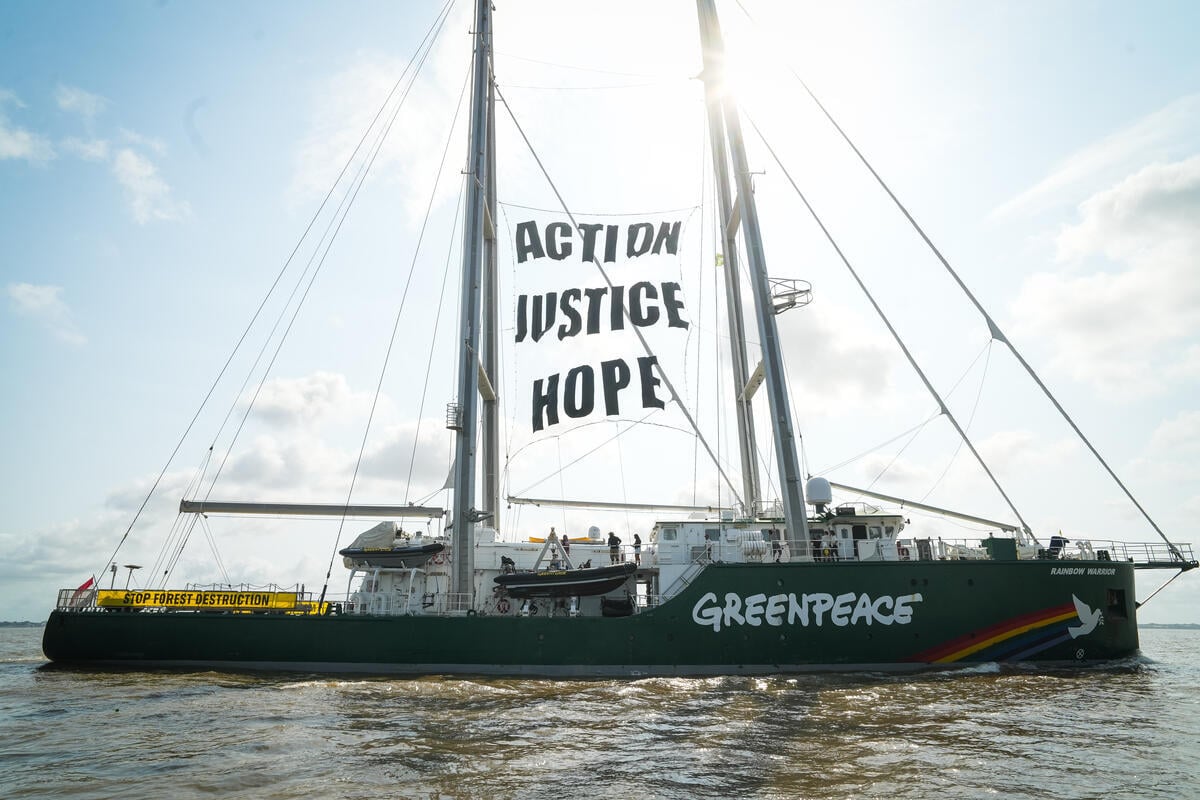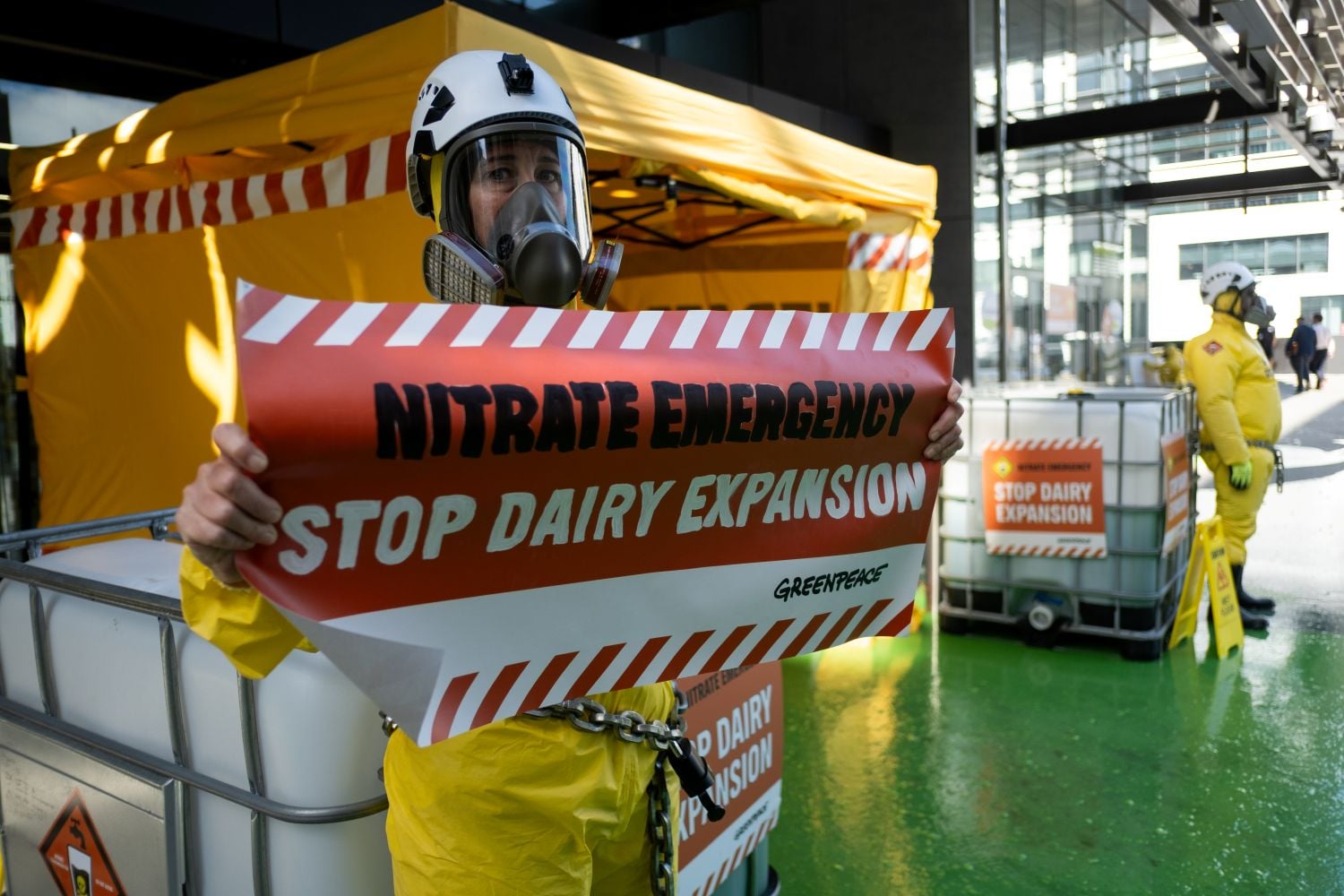Greenpeace is calling for an end to intensive dairy expansion, after outrageous revelations that tank water supplied to Glenavy residents by the district council is contaminated with nitrate at levels associated with increased reproductive risks. The organisation tested both the tank water outside Glenavy Hall and the Lower Waihao town supply today during its free water testing in Waimate, finding both were above 5 mg/L of nitrate contamination.
Greenpeace spokesperson Will Appelbe says, “This water is being provided as an alternative source for people who cannot drink the water coming out of their kitchen tap. But by getting water from this tank, locals are inadvertently putting themselves at increased risk of bowel cancer and preterm birth due to nitrate contamination.”
“When Glenavy was issued a ‘do not drink’ notice in response to nitrate contamination, locals were advised to drink the water from this tank as it was ‘safe’. From the conversations we’ve had today, it’s clear that many are still collecting drinking water from this tank with the belief that it’s lower level nitrate than the town supply.”
Greenpeace’s water testing revealed that the Glenavy town supply – the Lower Waihao scheme – was testing at 6.07mg/L, while the Glenavy council-supplied tank was testing at an average of 5.38mg/L.
A growing body of international evidence has linked nitrate levels above 5mg/L in drinking water with reproductive health risks, including an increased risk of preterm birth. The New Zealand College of Midwives has advised that pregnant people should consider finding an alternative water source if their water tests above 5mg/L for nitrate.
Greenpeace also tested several private bores today. The highest reading for a private bore was 17.1mg/L, and the lowest was 1.24mg/L. The mean average for private bore nitrate was 5.11mg/L – also above the level associated with increased preterm birth risks.
The organisation says that it’s not all bad news, though. Waimate’s town supply was testing at 0.07mg/L of nitrate on average – which is well below nitrate levels associated with any adverse health impacts.
“While Waimate town’s water supply is excellent, the Waimate District’s water woes are far from over,” says Appelbe. “Intensive dairying has contaminated town supplies and private bores with unsafe levels of nitrate, and it’s going to get worse before it gets better. Even if all intensive dairying stopped today, it could take another 20 years before we see improvement.”
Greenpeace is advocating for an end to dairy expansion in Canterbury, and a reduction in the amount of synthetic nitrogen fertiliser that is added to the land.
“We need our food systems to work for people and the planet. Agriculture can’t come at the expense of people’s access to clean, safe drinking water and swimmable rivers. Fonterra must support their farmers to transition away from intensive dairying and towards ecological farming practices that are better for nature.”



